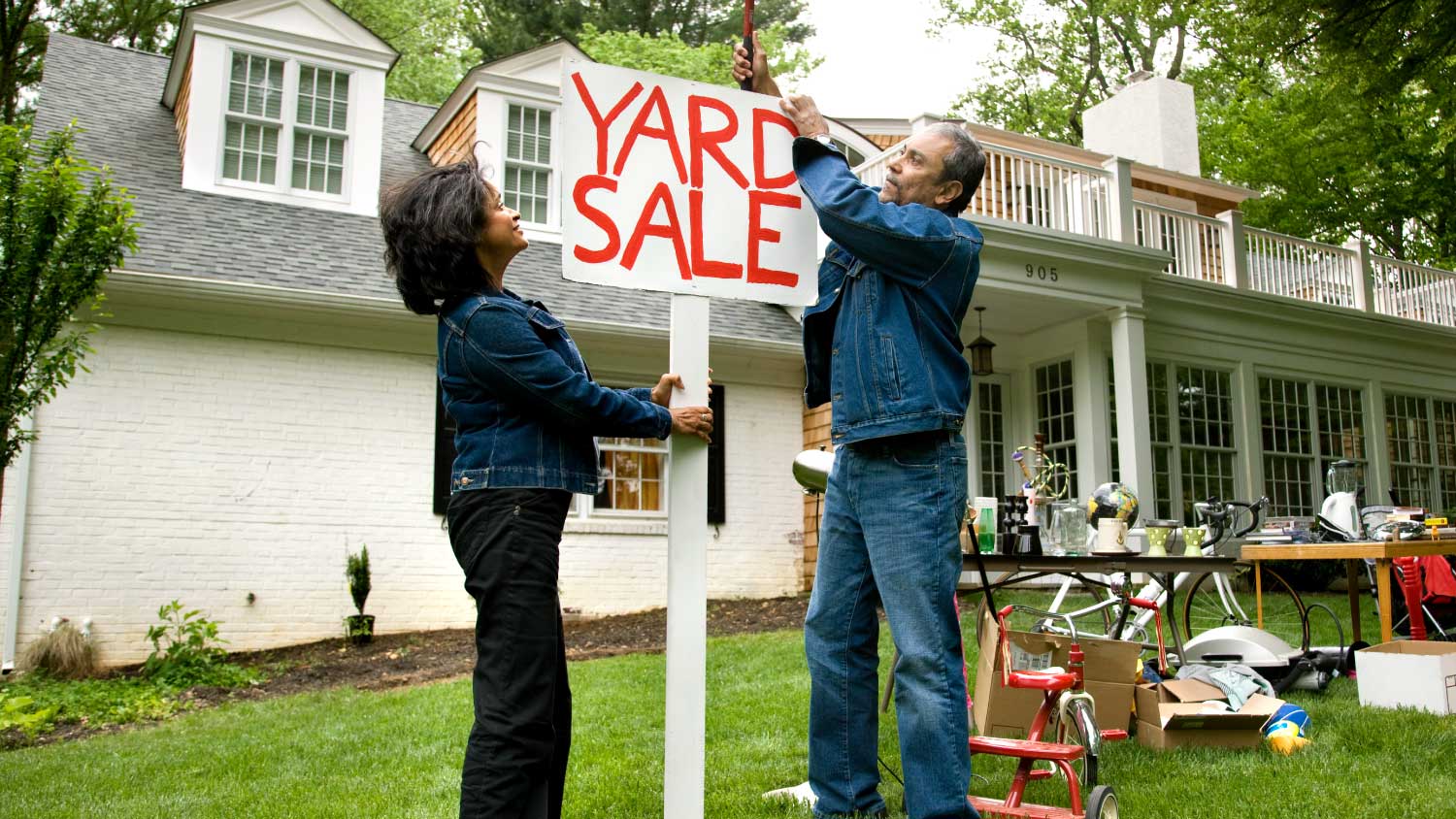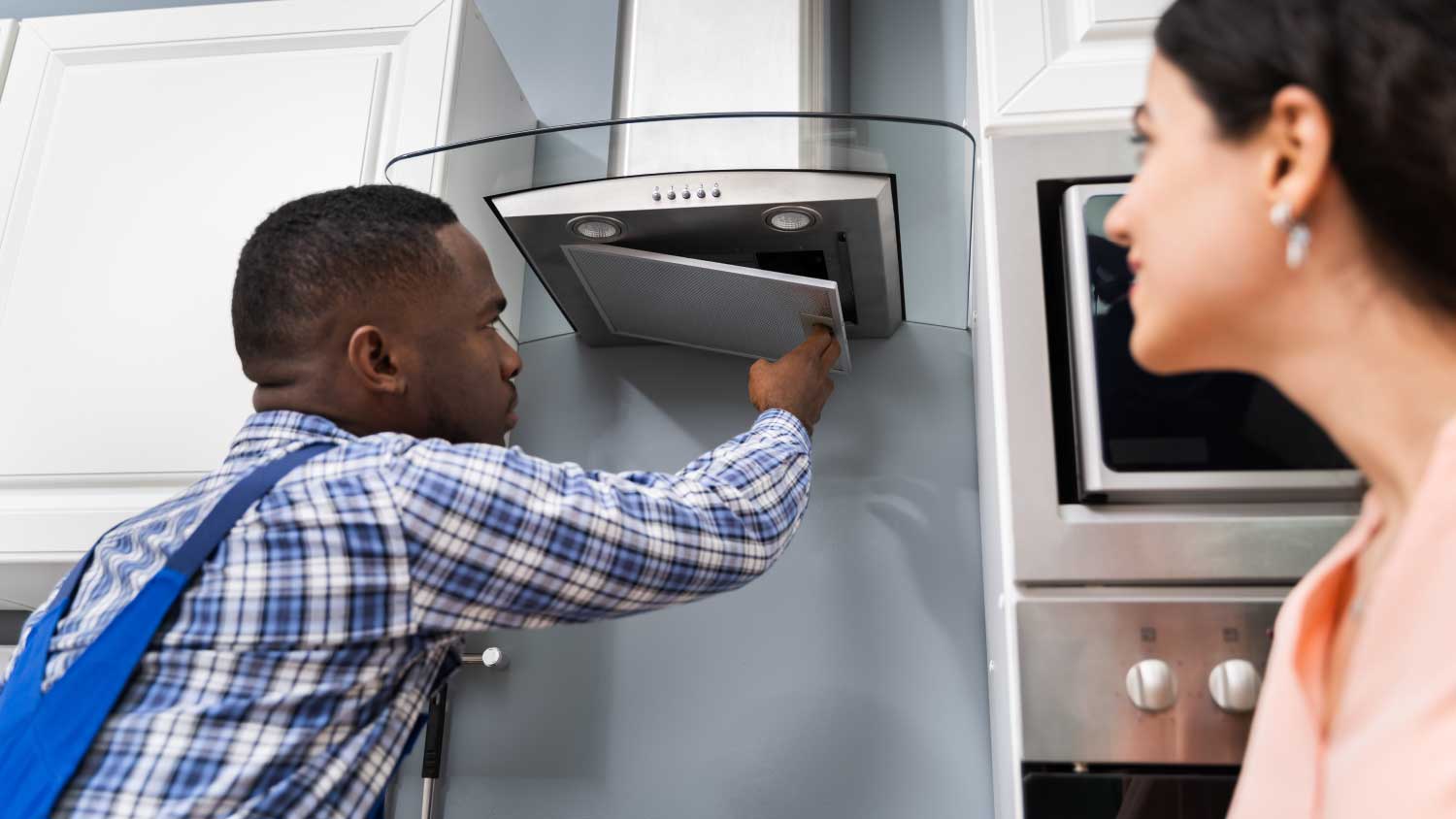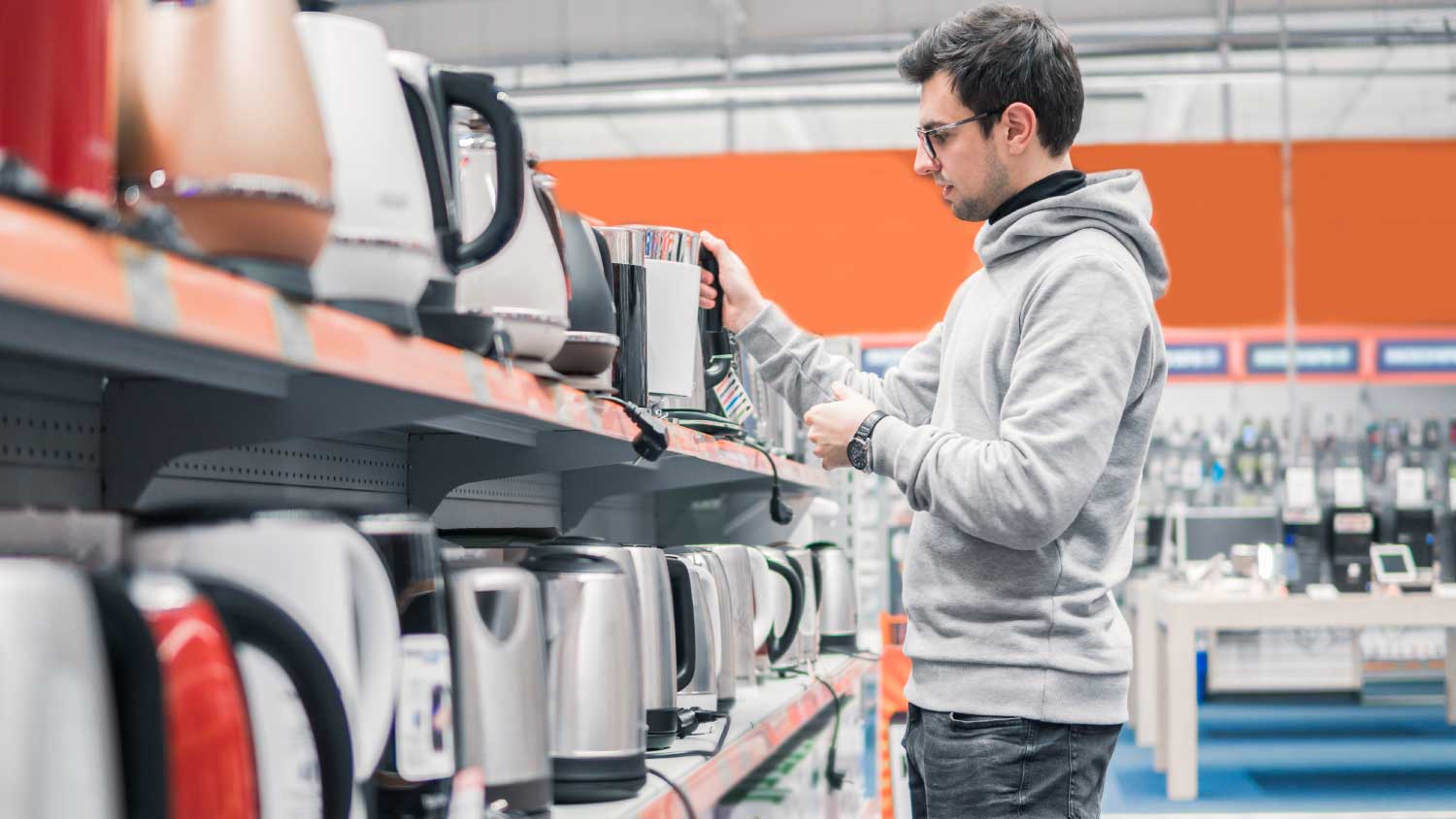What To Do With Old Appliances When You Replace Them
One person’s trash can be another’s treasure


Upgrading your home’s appliances is top-of-mind when remodeling or moving into a new home. So, where does that old washing machine go when it’s time to replace it? The most popular options are selling, donating, or recycling, but there are a few more alternatives you can explore.
First and foremost, be cautious of removing any household appliance on your own. Doing so can be risky, especially if you’re unfamiliar with electrical wiring or have difficulties lifting heavy items. You can always hire a junk removal company to help you remove your old appliance.
1. Recycle Old Appliances

Simply putting an old appliance out with your weekly trash isn’t a sustainable or safe option, as many appliances contain flammable liquids and hazardous substances that aren't suitable for regular trash disposals.
Fortunately, you can recycle many household appliances and gadgets.
Benefit of Recycling Appliances
If your utility bills are higher than usual, an old appliance could be the culprit. Since an older appliance tends to lose its efficiency over time, it starts to use more energy beyond its life span and typically does more harm than good.
Not only will recycling your old appliance help reduce your energy consumption, but it can also help you reduce your carbon footprint. If an old appliance is trashed instead of recycled, it will sit in a landfill, where rusting metal and gasses can release toxins into the environment.
Appliances to Recycle

Before you toss out any unwanted appliance, here’s a list of those that have recyclable parts that can be reused:
Refrigerator
Freezer
Washing machine
Dryer
Coffee maker
Oven and stove
Microwave
Dishwasher
Air Conditioner
Generally, you can dispose of older, inefficient refrigerated appliances through a designated Responsible Appliance Disposal (RAD) facility or electronic waste (e-waste) bounty program through an appliance retailer.
Where to Recycle Appliances
You have several options if you’re trying to figure out what to do with an old appliance. Here are some of the most popular options and places for recycling an appliance.
Appliance store: Some manufacturers and appliance stores, like Best Buy and Whirlpool, offer haul-away options for a fee. Sometimes, this fee will be slightly discounted if you are buying a new appliance through the retailer.
Scrap metal recycler: A metal recycler will take your old appliance and recycle the material for new goods and appliances.
Utility company: In many midsize and large cities, your local utility company will take your recyclable appliance. An old refrigerator and freezer are popular items.
ERA’s Responsible Appliance Disposal program: There are several RAD partners and affiliates across the country who will pick up your old appliance. Keep in mind that there might be a fee for this service.
2. Donate Appliances

If your appliance is old but still in good working condition, consider donating it. This way, you can make space for your home upgrades while also supporting your local community.
Where to Donate Appliances
You can donate your old appliance to one of the following organizations–who will also pick the appliance up free of charge:
Thrift stores
Charity/Nonprofit (i.e., The Salvation Army, Goodwill or Habitat for Humanity)
Church
Community outreach program
Homeless shelter
Appliance donation center
An easy way for you to get the word out about the availability of your old appliance is to talk with your neighbors or post on your community bulletin board.
You can also share your appliance on a mobile app like OfferUp, that matches users with local nonprofit organizations that may be looking for an old appliance.
Many appliance projects, whether it’s installing, repairing, or cleaning, will involve moving heavy objects. In order to avoid injury, homeowners should always get assistance from at least one other person when moving an appliance.
3. Sell Appliances

The popular saying, “One person’s trash is another person’s treasure,” can surely apply to an old household appliance. If it’s in good condition, why not sell your old appliance and make a few extra bucks?
Despite their age, stainless steel and energy-efficient appliances typically have the best resale value. Matching washer and dryer combos are also generally at the top of the used appliance list.
Where to Sell Appliances
You can find and connect with prospective buyers through:
Online marketplaces (i.e., eBay, Amazon, Facebook Marketplace, Craigslist, Neighborhood groups, etc. )
Mobile apps (i.e., OfferUp and Letgo)
Appliance dealer buy-back programs
Garage or yard sales
Scrap metal recyclers
If you want to get rid of more household items, host the perfect yard sale.
4. Repurpose Appliances

Buying a new appliance doesn’t necessarily mean the former one is old—you may just not have space for it. In this scenario, there are a few ways you can still keep your appliance and put them to good use.
Additional Storage
If your appliance is still working, consider keeping it around. Having an extra appliance can be helpful—especially if it’s a refrigerator, freezer, or washer and dryer. Set an old refrigerator in your garage or on the back patio to store drinks. This can come in handy when hosting gatherings or events at your home. If you have a large family or like to buy in bulk, find a spot for that old freezer. This will keep your regular freezer organized and less compacted. Likewise, an old washer and dryer can be a helpful addition to a guest house-type space or Airbnb rental.
Rental Space
From a basement renovation to a garage conversion, many homeowners rent out a portion of their home for some extra cash. If you have (or are planning to create) a rental space, you can use your older appliance in it.
Rental spaces that come with major appliances, such as washers and dryers, can be attractive to prospective renters and help make your rental property stand out.
Outdoor Living Space
Do you have an outdoor living space, such as a pool house, that can double as a guest house? Consider moving the appliances you are no longer using–like a mini-fridge or microwave–to your guest house.
5. Trade-In Appliances

In addition to selling appliances, you will find that many retailers will also take away your old appliance when installing a new one. A trade-in program is a convenient way for you to get rid of an old appliance quickly and safely.
Where to Find Trade-In Programs
Many manufacturers and retailers offer Trade-In Programs for their appliances, where they’ll accept a product of similar type—refrigerator for refrigerator—and provide you a credit toward the purchase of your new appliance. You can contact an appliance seller near you to see what appliances they will accept as a trade.
6. Gift to Others

Last but not least, you can always give your gently used appliance to family, friends, or other peers. If anyone you know is getting married or moving into a new home, offer the appliance as a wedding or housewarming gift.
How to Decide
Now that you have an idea of what you can do with an old appliance, the next step is deciding how to go about it. Should you donate, sell, or keep it? Use our chart below to help you decide.
For any small appliance that is safe to discard, you can contact a junk removal professional near you to properly dispose of them.

Frequently Asked Questions
It depends. Use the “50% rule” to help you decide. For example, you should consider replacing the appliance if it is halfway through its lifespan and the repair will cost more than 50% of the price of a new one. Contrary to popular belief, repairing a major appliance is more wallet-friendly than purchasing a new one. While the cost of new home appliances can run as high as $8,000, the average cost to repair them is $170. If the appliance you’re trying to get rid of isn’t too old, consult a local appliance repair expert to see what can be done to restore it.
Yes, you can recycle a small appliance. In some cases, a small appliance is one of the easiest to recycle because it’s easy to transport and is in high demand for use as scrap metal. The most common recyclable items include toasters, slow cookers, lamps and lighting, microwaves, and food processors. Charitable organizations, scrap yards and utility companies are good places to recycle your small appliance.
It’s best practice to responsibly dispose of a refrigerator, as it can contain substances that are harmful to the environment, and to avoid illegal dumping. Explore other options for getting rid of an old refrigerator such as selling it on Facebook Marketplace, recycling it at a local scrap yard, or donating it to a nonprofit organization.


- Appliance Repair Companies
- Washing Machine Repair
- Dryer Repair
- Refrigerator Repair
- Dishwasher Repair
- Oven Repair
- Wood & Pellet Stove Repair
- Freezer Repair Services
- Wood Stove Services
- Gas Stove Repair
- Emergency Appliance Repair Companies
- Ice Maker Repair
- Gas Appliance Repair
- GE Appliance Repair
- GE Refrigerator Repair
- GE Dryer Repair
- GE Dishwasher Repair
- GE Washing Machine Repair
- Samsung Appliance Repair
- Samsung Refrigerator Repair
- Samsung Dryer Repair
- Samsung Washer Repair
- Samsung Dishwasher Repair
- Samsung Oven Repair
- Whirlpool Repair
- Whirlpool Refrigerator Repair
- Whirlpool Washer Repair
- Whirlpool Dryer Repair
- Whirlpool Oven Repair
- Maytag Appliance Repair
- Maytag Refrigerator Repair
- Maytag Washer Repair
- Maytag Dryer Repair
- Maytag Dishwasher Repair
- Kitchenaid Appliance Repair
- Kitchenaid Oven Repair
- Kitchenaid Refrigerator Repair
- Kenmore Appliance Repair
- Kenmore Dishwasher Repair
- Kenmore Washer Repair
- Kenmore Dryer Repair
- LG Refrigerator Repair
- Bosch Appliance Repair
- Kenmore Refrigerator Repair
- LG Appliance Repair Services
- GE Microwave Repair
- Electrolux Appliance Repair
- Electrolux Washer Repair
- Kitchenaid Dishwasher Repair Services
- Wood Stove Inspection
- Dishwasher Installation
- Trash Compactor Repair
- Should I Repair or Replace My Appliances?
- 8 Tips for Buying Kitchen Appliances
- DIY Appliance Installation: 9 Tips For Success
- How to Dispose of Appliances Properly
- 7 Ways to Tell if a Used Appliance is a Truly Good Deal
- 5 Useful Tips for Moving Your Appliances Safely
- How to Dispose of a Refrigerator Properly
- When Is the Best Time to Buy Kitchen Appliances?
- 6 Design-Savvy Tips for Hiding Kitchen Appliances
- How to Dispose of an Old Washer and Dryer Properly











